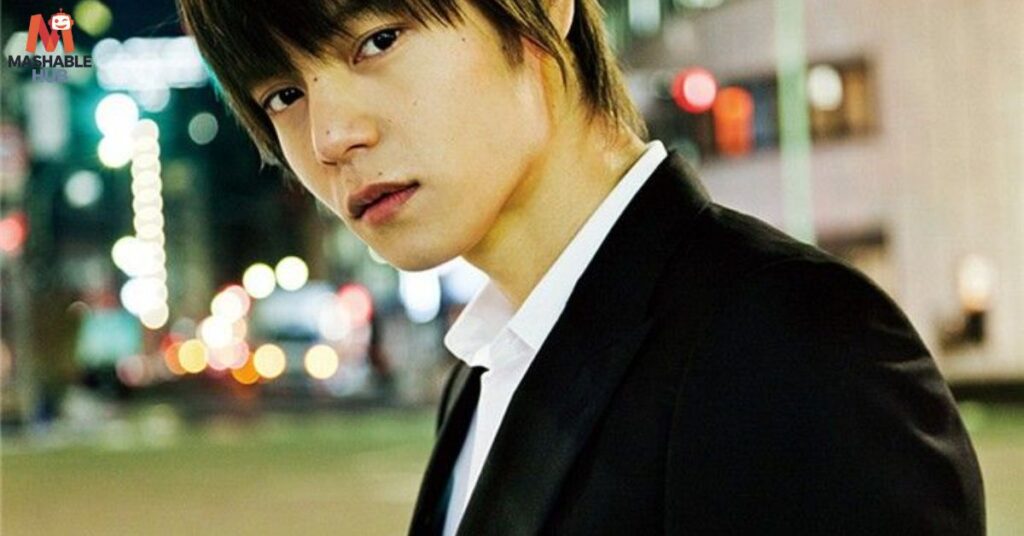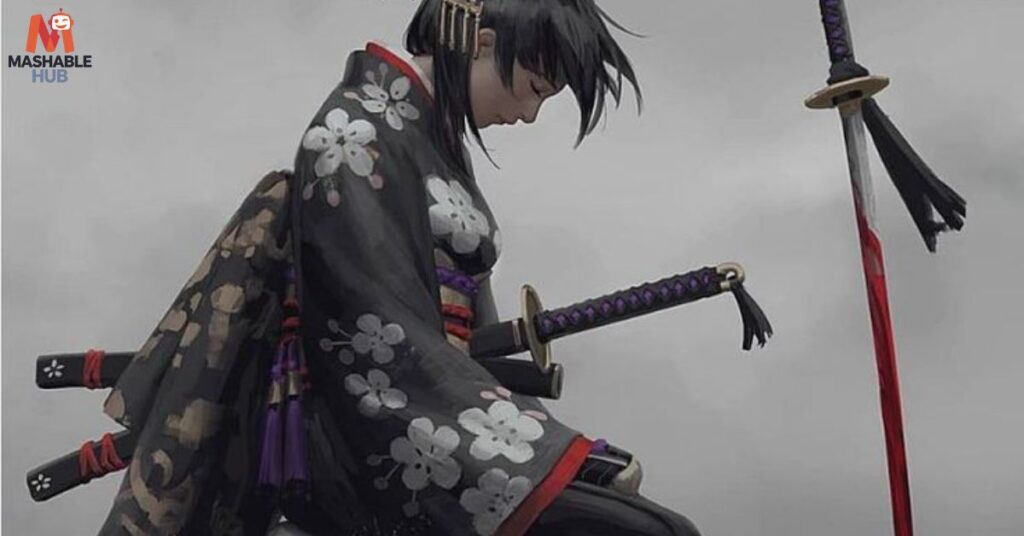Japanese Names That Mean Death
In Japanese culture, names carry deep meaning, often reflecting the characteristics, values, or beliefs of the individual or the family. One intriguing aspect of this tradition is the use of names that signify death, mortality, or the afterlife.
These names, though seemingly melancholic, often reflect a profound cultural significance surrounding life and death, and they reveal how the Japanese view the cycle of existence. For those exploring Japanese names associated with death, this article will discuss their meanings, origins, and symbolism.
Purpose of Choosing Japanese Names That Mean Death
Names tied to death in Japanese culture are not chosen lightly. They often carry spiritual and symbolic significance, representing an acceptance of life’s fleeting nature or as a tribute to the deceased. In many cases, death is seen as a continuation of one’s spiritual journey rather than the end, particularly in Japanese mythology and Buddhist beliefs.
Cultural Context and Symbolism
In Japan, names reflecting death can signify the natural cycle of life. For example, the Buddhist concept of impermanence emphasizes that death is a natural part of life. Names that embody this theme remind us of the transient nature of our existence and the beauty of letting go. These names are often chosen as a mark of reverence, honoring ancestors or loved ones who have passed on.
The kanji characters in these names add further depth, with specific characters signifying elements like darkness, shadows, or spiritual transition.
Japanese Boys Names That Mean Death

Here are several Japanese boy names that carry meanings related to death. These names reflect the deep connection between life, death, and spirituality in Japanese culture, often symbolizing aspects of the afterlife or the cycle of life and death.
Ankoku (暗黒) – “Darkness”
Ankoku translates to “darkness,” symbolizing the unknown and mysterious aspects of life and death. The name is often associated with themes of shadows and the underworld in Japanese mythology.
Shiin (死陰) – “Shadow of Death”
Shiin combines the kanji for “death” (死) and “shadow” (陰), representing death as a constant presence in life. This name reflects the concept of the shadow of death and the idea of death always lurking in the background.
Kuroi (黒井) – “Black Well”
Kuroi, meaning “black well,” symbolizes depth and the mystery of death. A well can represent both life and death, being a source of life (water) while also suggesting an abyss or unknown depths.
Meifu (冥府) – “Underworld”
Meifu directly refers to the underworld or the realm of the dead in Japanese culture. It signifies the journey the soul takes after death, transitioning from the physical world to the spiritual one.
Reishi (霊死) – “Spiritual Death”
Reishi combines “spirit” (霊) and “death” (死), representing the concept of spiritual death and the departure of the soul. It emphasizes the spiritual journey that begins after physical death.
Yami (闇) – “Darkness/Night”
Yami means “darkness” or “night” and often symbolizes the unknown or the end of life. It reflects the melancholic and mysterious nature of death, as seen in Japanese society’s views on mortality.
Shinigami (死神) – “God of Death”
Shinigami is the god of death in Japanese mythology, guiding souls to the afterlife. Though not traditionally a personal name, it has gained popularity in literature and media, representing a powerful connection to death.
These names each carry their own symbolism and spiritual significance, reflecting the deep reverence for the concept of death in Japanese culture.
Japanese Names That Mean Death For Males
For boys, male Japanese names that mean death often convey strength and the acceptance of life’s inevitable end. The following names not only evoke a connection to death but also carry layers of meaning rooted in Japanese mythology, spirituality, and symbolism:
Ankoku (暗黒) – “Darkness”
Ankoku directly translates to “darkness.” It symbolizes the unknown and the deep, often mysterious, aspects of life and death. Darkness, in this sense, represents not only the fear associated with death but also the peaceful, calm state that follows.
Shiin (死陰) – “Shadow of Death”
Shiin combines the kanji for “death” (死) and “shadow” (陰), representing the ever-present nature of death in the background of life. This name reflects the idea that death is always near, a part of the natural order.
Kuroi (黒井) – “Black Well”
Kuroi, meaning “black well,” is symbolic of the depth and mystery of the afterlife. A well can signify both life and death in Japanese culture, as it holds water (a life-giving force) while also being a dark, unknown abyss.
Reishi (霊死) – “Spiritual Death”
Reishi is a name deeply connected to spirituality and the departure of the soul. It reflects the belief in the afterlife, where the spirit moves on after physical death.
Meifu (冥府) – “Underworld”
Meifu refers to the underworld or the realm of the dead in Japanese mythology. This name embodies the passage from the physical world to the spiritual realm, symbolizing the journey of the soul after death.
Japanese Names That Mean Death For Females

While female Japanese names meaning death may seem somber, they often contain elements of beauty, peace, and melancholy. These names reflect an appreciation for the cycle of life and death, offering a tribute to those who have passed.
Kurami (暗美) – “Beauty in Darkness”
Kurami symbolizes finding beauty within the darkness, representing both death and the elegance that can be found in life’s final moments. This name carries a duality that is characteristic of many Japanese names—a balance between darkness and beauty.
Yuumei (夕冥) – “Evening Darkness”
Yuumei is a poetic name that signifies the twilight or evening, metaphorically referring to the end of life. The kanji characters used here suggest the closing of a day, making it a fitting name for someone reflecting the peaceful transition from life to death.
Reika (霊火) – “Spirit Flame”
Reika combines the kanji for “spirit” (霊) and “fire” (火), representing the enduring flame of the spirit even after death. The name conveys strength and continuity beyond the physical body.
Mayoi (迷い) – “Lost”
Mayoi refers to a soul that is lost or wandering, often between life and death. This name touches on the concept of a soul that has not yet found its way to the afterlife, adding an air of mystery and sadness.
Japanese Last Names That Mean Death
In addition to given names, there are also Japanese last names with connections to death. These family names often symbolize the honor or reverence given to those who have passed, serving as a reminder of the cultural significance of death in Japanese society.
Bohyou (墓標) – “Gravestone”
Bohyou means “gravestone,” symbolizing death and remembrance. It’s a name that reflects the importance of honoring ancestors and keeping their memory alive.
Kuchiki (朽木) – “Decayed Wood”
Kuchiki translates to “decayed wood,” a powerful metaphor for life’s eventual decline. It symbolizes the cycle of life, where decay is part of renewal, a constant theme in Japanese culture.
Shuen (終焉) – “Demise”
Shuen is a surname that directly refers to the end or demise, making it a unique last name associated with the final stage of life. It reflects acceptance of death as an inevitable and natural part of existence.
Best Japanese Names That Mean Death

Certain names stand out as the most popular and symbolic when it comes to death-related meanings. These names often capture the essence of mortality and the journey into the afterlife.
Seiran (青嵐) – “Blue Storm”
Seiran represents a “blue storm,” symbolizing turmoil and the stormy nature of life’s end. It carries both beauty and destruction, a fitting metaphor for the complexities of death.
Shinigami (死神) – “God of Death”
Shinigami is one of the most well-known names in Japanese mythology. Representing the god or spirit of death, Shinigami guides souls to the afterlife. This name is rich in cultural significance and reflects the deep respect for the dead in Japanese society.
Ranshou (乱昇) – “Chaotic Ascent”
Ranshou translates to “chaotic ascent,” symbolizing the unpredictable nature of life’s end and the soul’s rise to the afterlife. The name reflects the idea of a tumultuous journey from the physical to the spiritual realm.
Yoru (夜) – “Night”
Yoru represents night, which is often linked with death in many cultures, including Japan. This name captures the peacefulness of night as a metaphor for the final stage of life.
Unisex Japanese Names Meaning Death
Unisex Japanese names associated with death are often more neutral in tone but no less symbolic. These names can be used for both boys and girls, highlighting the universality of death in all lives.
Kageki (影棄) – “Abandoned Shadow”
Kageki reflects the idea of leaving behind the shadow, symbolizing the departure of the soul from the physical body.
Nemuri (眠り) – “Sleep”
Nemuri serves as a gentle metaphor for death, equating the final rest with sleep. It’s a serene and peaceful name, appropriate for both genders.
Reikon (霊魂) – “Soul”
Reikon means “soul” and signifies the enduring part of an individual that continues beyond death. This name reflects spirituality and the belief in the afterlife.
Mangetsu (満月) – “Full Moon”
Mangetsu, or full moon, symbolizes completion and wholeness, representing the full cycle of life. It suggests that death is merely the closing chapter in one’s journey.
Japanese name for the bringer of death
In Japanese mythology, the term for the bringer of death is “Shinigami” (死神).
The word Shinigami is a combination of two kanji:
- “Shi” (死) meaning “death”
- “Kami” or “Gami” (神) meaning “god” or “spirit”
Thus, Shinigami translates to “god of death” or “death spirit.” Shinigami are believed to be supernatural beings or deities who invite humans toward death and guide their souls to the afterlife.
In Japanese culture, Shinigami has become symbolic of the cycle of life and death, often associated with spirits that help maintain the balance between the worlds of the living and the dead.
They feature prominently in Japanese folklore, religious practices, and modern pop culture, serving as a representation of death’s inevitability and the spiritual journey that follows.
Frequently Asked Questions
What does “Shinigami” mean in Japanese?
Shinigami means “god of death” or “death spirit” in Japanese. It refers to beings that guide souls to the afterlife.
Are there Japanese boy names that mean death?
Yes, some Japanese boy names associated with death include Ankoku (darkness), Shiin (silence of death), and Kuroi (black/dark).
Why do some Japanese names have meanings related to death?
In Japanese culture, names related to death often symbolize the cycle of life, darkness, and spirituality, reflecting deeper meanings about life and mortality.
Is “Shinigami” a common name in Japan?
No, Shinigami is not used as a personal name; it is a mythological figure representing death in Japanese folklore.
What is the cultural significance of death-related names in Japan?
Names with death-related meanings reflect the spiritual journey, the balance between life and death, and are often used in literature, art, and mythology.
What is a popular Japanese boy name that means death?
Popular choices include Shiin, meaning “shadow of death,” and Ankoku, meaning “darkness”.
Can “Shinigami” be used as a real name?
While Shinigami is primarily a mythological figure representing the god of death, some people have adopted it as a symbolic name.
Conclusion
In Japanese society, names that mean death carry a weight of symbolism and cultural significance. Whether reflecting the natural cycle of life or serving as a reminder of those who have passed, these names are deeply intertwined with spirituality and tradition.
From male and female names to unisex and last names, each carries its own story and connection to death. Exploring these names provides insight into how death is viewed in Japanese culture as both an end and a new beginning in the cycle of existence.
For those interested in the symbolism behind these names, they offer a profound connection to the spiritual world and the afterlife, reminding us of the delicate balance between life and death in Japanese mythology and tradition.
Read more:
Worst Time to Visit St. Thomas
8 Evil Goddess Names in Mythology
